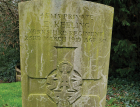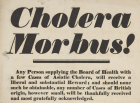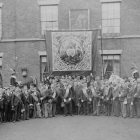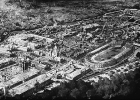Health & Medicine through Time
Attitudes to sickness and health have played a key role across different civilisations and throughout time. The emphasis placed by the ancient societies of Egypt and Greece on the human body are discussed under this theme and the impact those beliefs had on society as it developed. Changes in welfare and hygiene are explored as are attitudes to cleanliness and the eradication of disease. The radical changes to the understanding, experimentation and application of medicine from the nineteenth century to today are an important part of this theme and are explored here.
Sort by:
Date (Newest first) | Title A-Z
Show:
All |
Articles |
Podcasts |
Multipage Articles
-

Real Lives: Commonwealth War Graves Commission memorial: Edward George Keeling
ArticleClick to view -

The NHS: Britain’s National Health Service, 1948-2020
ArticleClick to view -

The Origins of the Local Government Service
ArticleClick to view -

The death of a hero: Vice-Admiral Horatio Lord Nelson
ArticleClick to view -

The development of the Department of Health
ArticleClick to view -

The experience of Bilston in the cholera epidemic of 1831–32
ArticleClick to view -

The right to fight: women’s boxing in Britain
ArticleClick to view -

The world in 1913: friendly societies
ArticleClick to view -

Vera Ignatievna Giedroyc: her missions of mercy, 1899–1932
ArticleClick to view -

WWI and the flu pandemic
ArticleClick to view -

White City: the world’s first Olympic Stadium
ArticleClick to view

